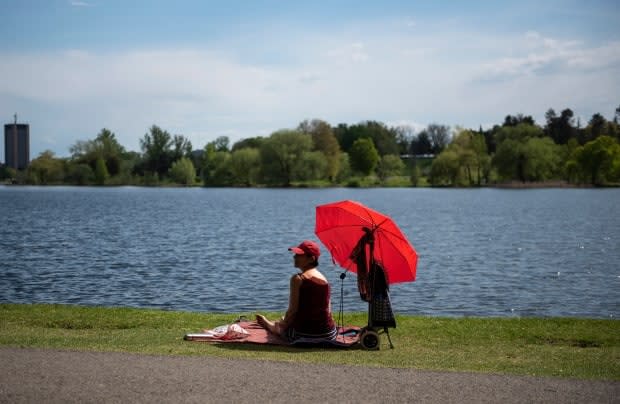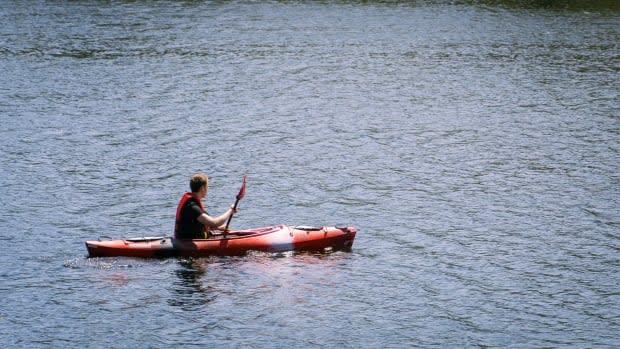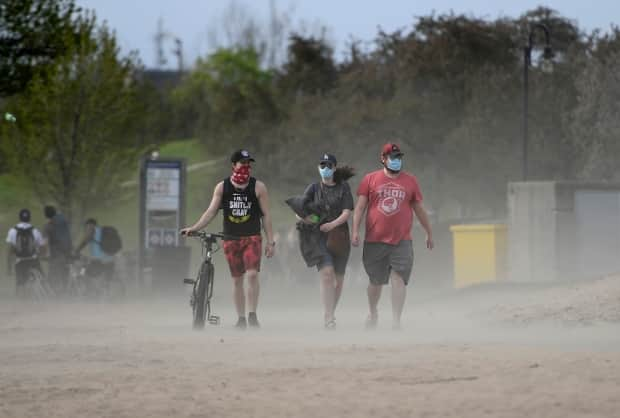What you need to know about COVID-19 in Ottawa on Tuesday, May 18

Recent developments:
Ottawa is reporting 50 new COVID-19 cases Tuesday and two more deaths.
What's the latest?
Ottawa Public Health (OPH) has confirmed another 50 COVID-19 cases and two more deaths. Renfrew County's health unit reported its eighth COVID-19 death Tuesday.
Quebec Premier François Legault is set to announce a roadmap to reopen the province at a 5 p.m. ET news conference.
Sources tell Radio-Canada that could mean a return to dining out and an end to the curfew on May 28.
Ontario has lowered its general elegibility age for a COVID-19 vaccine to 18. Anyone born in 2003 or earlier can now reserve an appointment through the provincial booking system.
However most health units in eastern Ontario including Ottawa Public Health say all available slots were quickly claimed. Anyone who missed out is being advised to watch for more openings.
How many cases are there?
The region is coming down from a record-breaking peak of the pandemic's third wave, one that has included more dangerous coronavirus variants. The rate of spread is still high.
As of Tuesday, 26,161 Ottawa residents have tested positive for COVID-19. There are 1,007 known active cases, 24,616 resolved cases and 538 deaths.
Public health officials have reported more than 47,600 COVID-19 cases across eastern Ontario and western Quebec, including more than 45,100 resolved cases.
Elsewhere in eastern Ontario, 184 people have died. In western Quebec, the death toll is 208.
Akwesasne has had more than 680 residents test positive and 10 deaths between its northern and southern sections.
Kitigan Zibi has had 34 cases. Tyendinaga Mohawk Territory has had 11, with one death. Pikwakanagan hasn't had any.
The transfer of COVID-19 patients from other regions to Ottawa hospitals continues. As of the most recent update Tuesday, there were 24 COVID-19 patients from other communities in Ottawa ICUs.
CBC Ottawa is profiling those who've died of COVID-19. If you'd like to share your loved one's story, please get in touch.
What can I do?
Eastern Ontario:
Ontario is under a stay-at-home order until at least June 2.
People should only leave home for essential reasons like getting groceries, seeking health care and exercising in their immediate area.

The vast majority of gatherings are prohibited. Exceptions include small activities with households and small religious services.
Golf courses and tennis and basketball courts are among the closed recreation venues.
Ontario has moved to online learning. Daycares remain open and the plan is to open summer camps.
WATCH | Lessons from a full school year of pandemic disruptions:
Most non-essential businesses can only offer curbside pickup. Access to malls is restricted and big-box stores can only sell essential items.
Gyms and personal care services are closed, while restaurants are only available for takeout and delivery.
Police checkpoints between Ontario and Quebec are not running 24/7. Officers in Ontario have the power to stop and question people if they believe they've gathered illegally.
Local health units and communities can also set their own rules, as Ottawa is doing around playgrounds and the Belleville area is doing for the agriculture industry.
Western Quebec
Western Quebec is under red zone rules.
High schools, gyms, theatres, personal care services and non-essential businesses are now able to reopen, albeit with restrictions.
The curfew is now in place from 9:30 p.m. until 5 a.m.
WATCH | Latest legal arugment against curfew rejected:
Private gatherings remain banned, except for a person who lives alone seeing one other household.
Small religious services are allowed and people can go to theatres. Older secondary school students will be going to classrooms every second day. Distanced outdoor exercise is allowed in groups up to eight people.
People can't travel to yellow or green zones or risk a fine.
Distancing and isolating
The novel coronavirus primarily spreads through droplets that can hang in the air.
People can be contagious without symptoms, even after getting a vaccine. Coronavirus variants of concern are more contagious and are now established.
This means it is important to take precautions now and in the future like staying home while sick — and getting help with costs if needed — keeping hands and surfaces clean and maintaining distance from anyone you don't live with, even with a mask on.
Masks, preferably ones that fit snugly and have three layers, are mandatory in indoor public settings in Ontario and Quebec.
OPH says residents should wear masks outside their homes whenever possible.

People have to show proof of a recent negative COVID-19 test to enter Canada by land without a fine and have to pay for their stay in a quarantine hotel if entering by air.
Anyone with COVID-19 symptoms should self-isolate, as should those who've been ordered to do so by their public health unit. The length varies in Quebec and Ontario.
Health Canada recommends older adults and people with underlying medical conditions get help with errands.
Vaccines
Four COVID-19 vaccines have been deemed safe and approved in Canada.
Ontario and Quebec have both stopped giving first doses of the AstraZeneca-Oxford vaccine, but plan to give second doses.
Canada's task force said first doses offer such strong protection that people can wait up to four months to get a second.
About 1,040,000 doses have been given out in the Ottawa-Gatineau region since mid-December, including about 470,000 doses to Ottawa residents and more than 210,000 in western Quebec.
Eastern Ontario
Ontario is vaccinating people 18 and older and 17-year-olds turning 18 in 2021. People can look for a provincial appointment online or over the phone at 1-833-943-3900.
Pharmacies continue to offer vaccines through their own booking systems as supply allows.
Ontario plans to allow everyone over age 12 to make an appointment starting the week of May 31. Individual health units and First Nations can choose to vaccinate that age group at pop-up clinics.
Local health units have other kinds of flexibility in the larger framework, including around booking, so check their websites for details.
Western Quebec
Quebec is vaccinating everyone age 18 and older. Teens age 16 and 17 are eligible if they have certain jobs or a chronic illness or disability.
The province plans to reach children as young as 12 in June.
People who qualify can make an appointment online or over the phone. There are currently no local walk-in options.
WATCH | U.S. sharing more vaccines:
Symptoms and testing
COVID-19 can range from a cold-like illness to a severe lung infection, with common symptoms including fever, a cough, vomiting and loss of taste or smell. Children tend to have an upset stomach and/or a rash.
If you have severe symptoms, call 911.
Mental health can also be affected by the pandemic, and resources are available to help.
WATCH | The sudden, dramatic increase in young people needing mental health care:
In eastern Ontario:
Anyone seeking a test should make an appointment. Check with your health unit for clinic locations and hours.
Ontario recommends only getting tested if you fit certain criteria, such as having symptoms, exposure or a certain job.
People without symptoms but who are part of the province's targeted testing strategy can make an appointment at select pharmacies. Shoppers Drug Mart stores can now offer rapid tests.
Travellers who need a test have very few local options to pay for one.
In western Quebec:
Tests are strongly recommended for people with symptoms and their contacts.
People can make an appointment and check wait times online.
Call 1-877-644-4545 with questions, including if walk-in testing is available nearby.
First Nations, Inuit and Métis:
First Nations, Inuit and Métis people, or someone travelling to work in a remote Indigenous community, are eligible for a test in Ontario.
Akwesasne has a COVID-19 test site by appointment only and a curfew of 11 p.m. to 5 a.m.
Anyone returning to the community on the Canadian side of the international border who's been farther than 160 kilometres away — or visited Montreal — for non-essential reasons is asked to self-isolate for 14 days.
People in Pikwakanagan can book a COVID-19 test by calling 613-625-1175. Anyone in Tyendinaga who's interested in a test can call 613-967-3603 and in Kitigan Zibi, 819-449-5593.
Tyendinaga's council is asking people not to travel there to camp or fish.
Inuit in Ottawa can call the Akausivik Inuit Family Health Team at 613-740-0999 for service, including testing and vaccines, in Inuktitut or English on weekdays.
For more information

